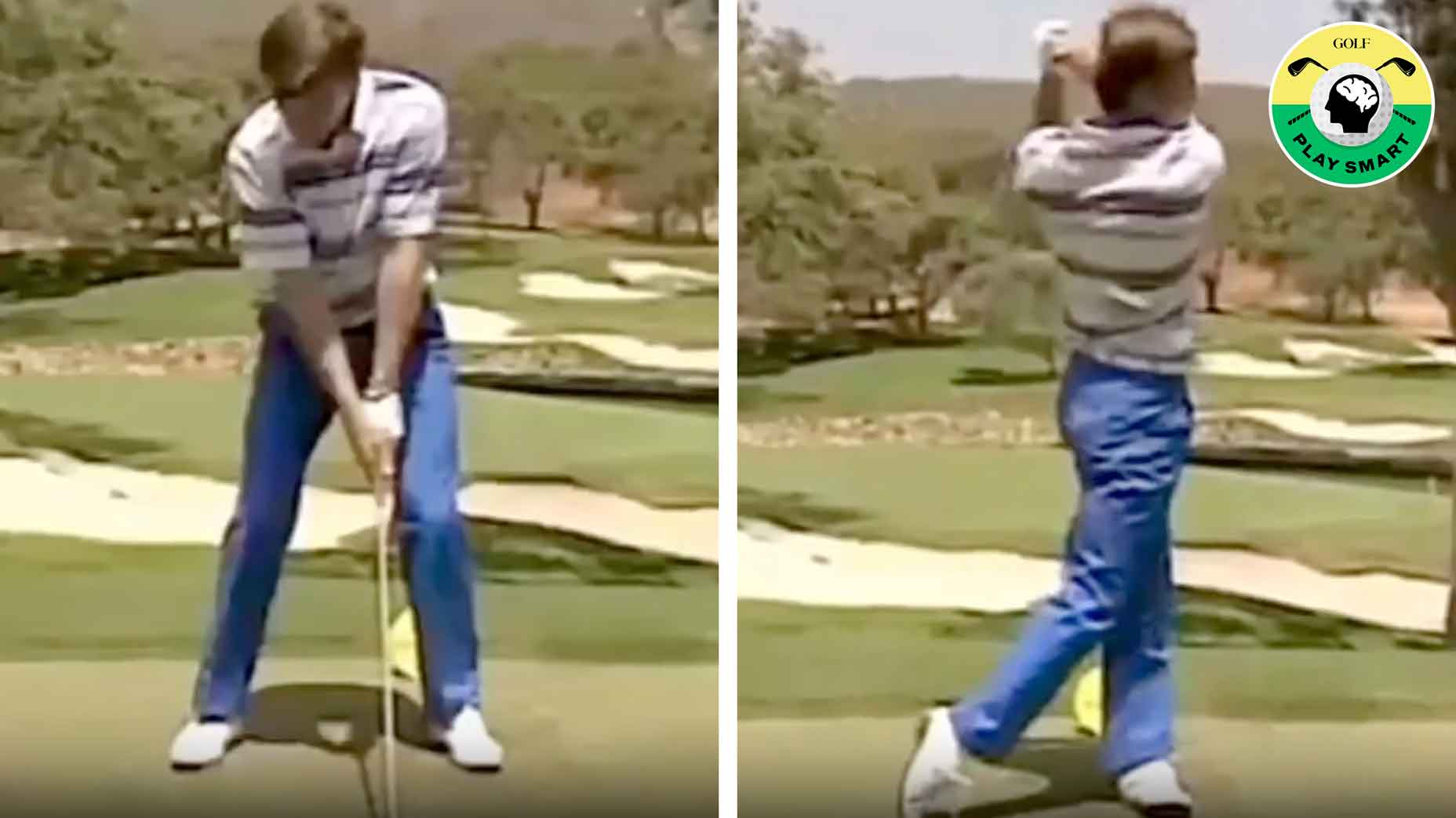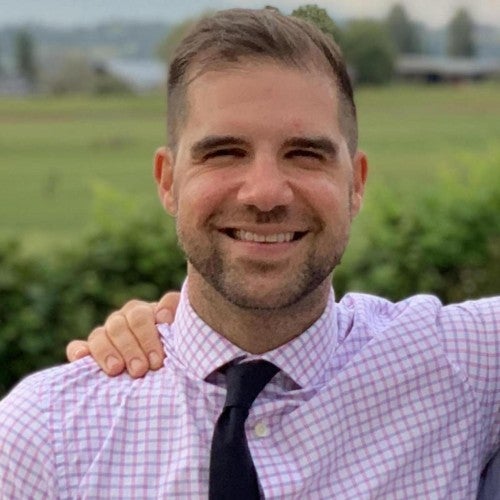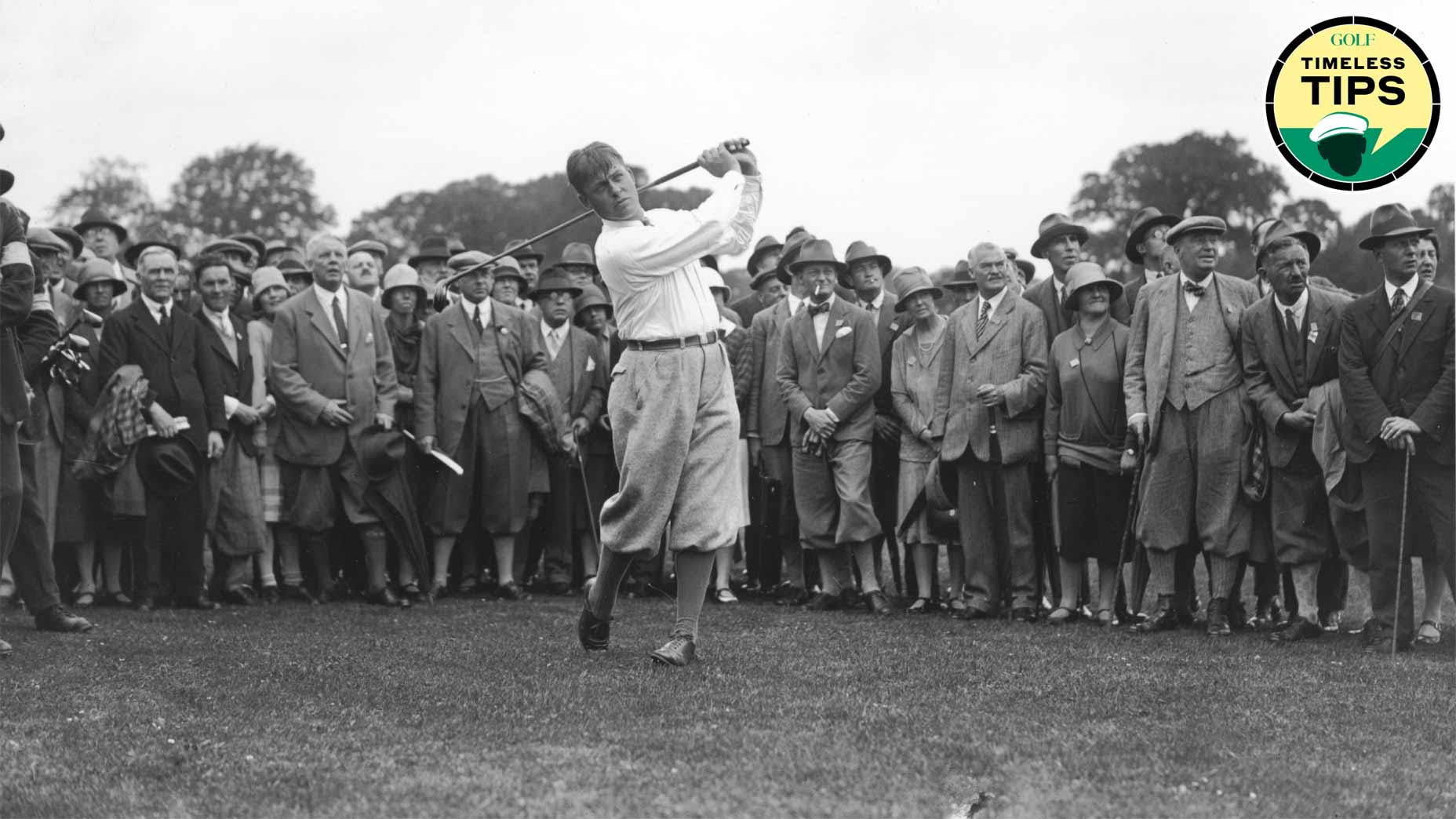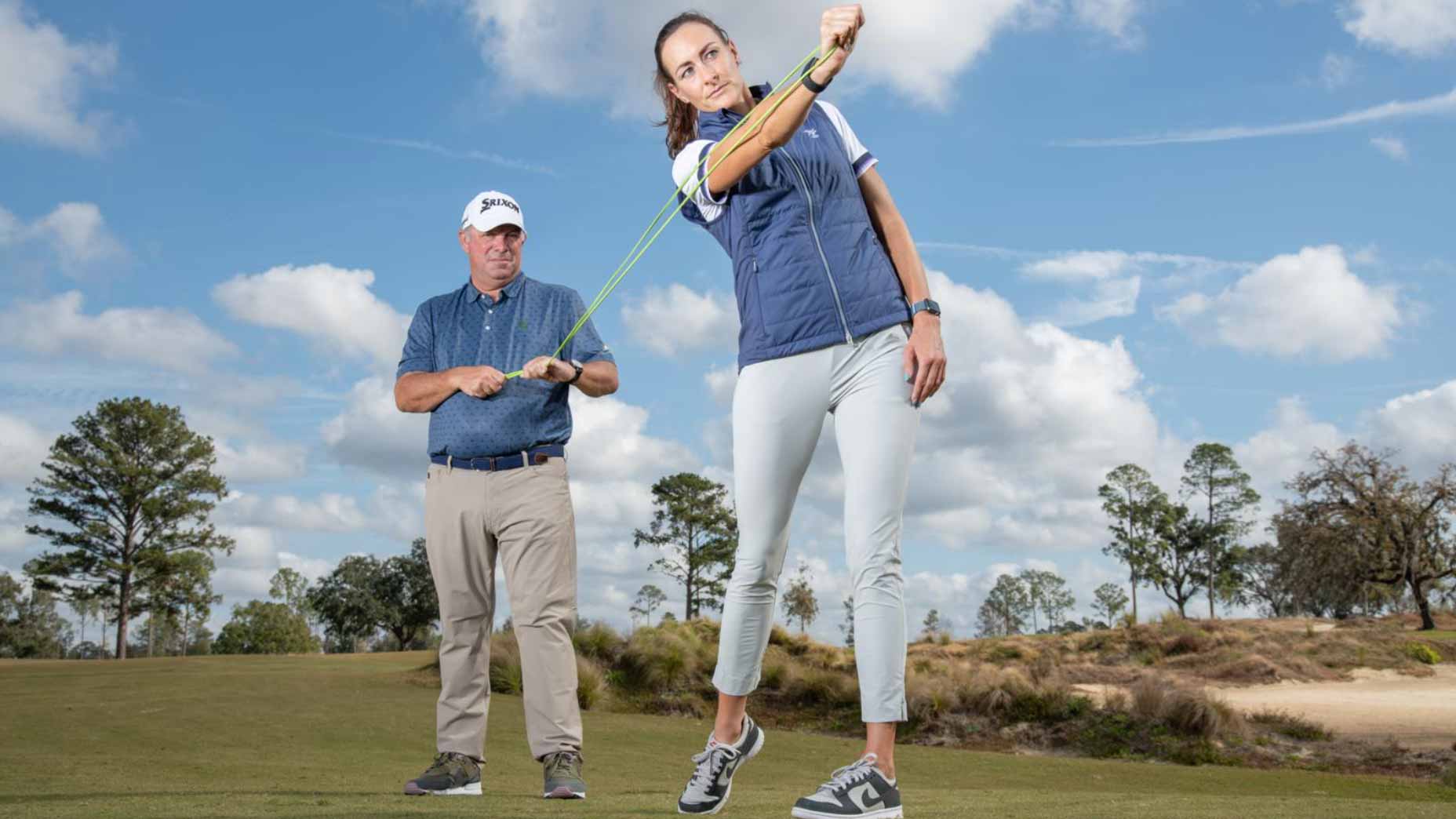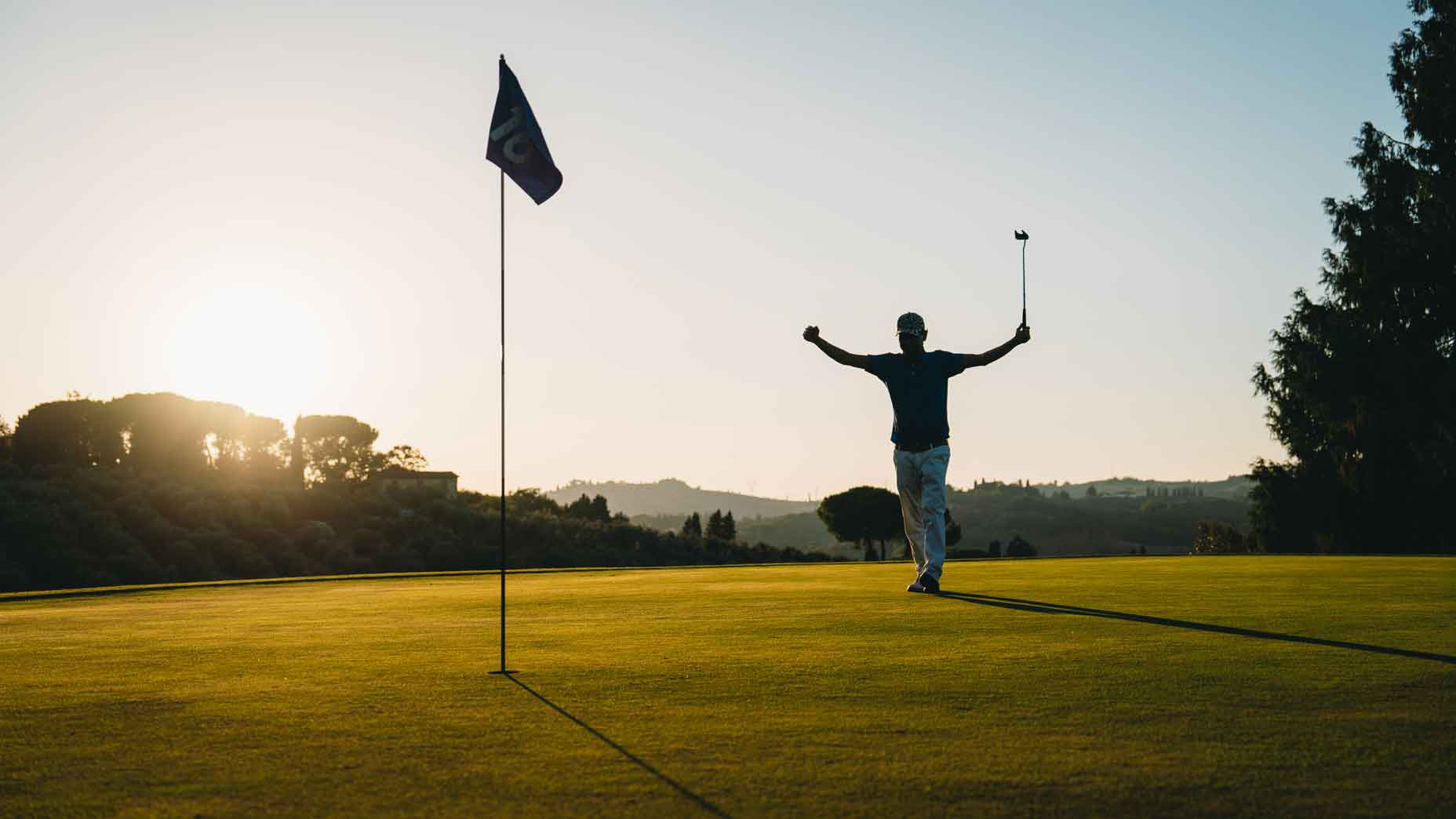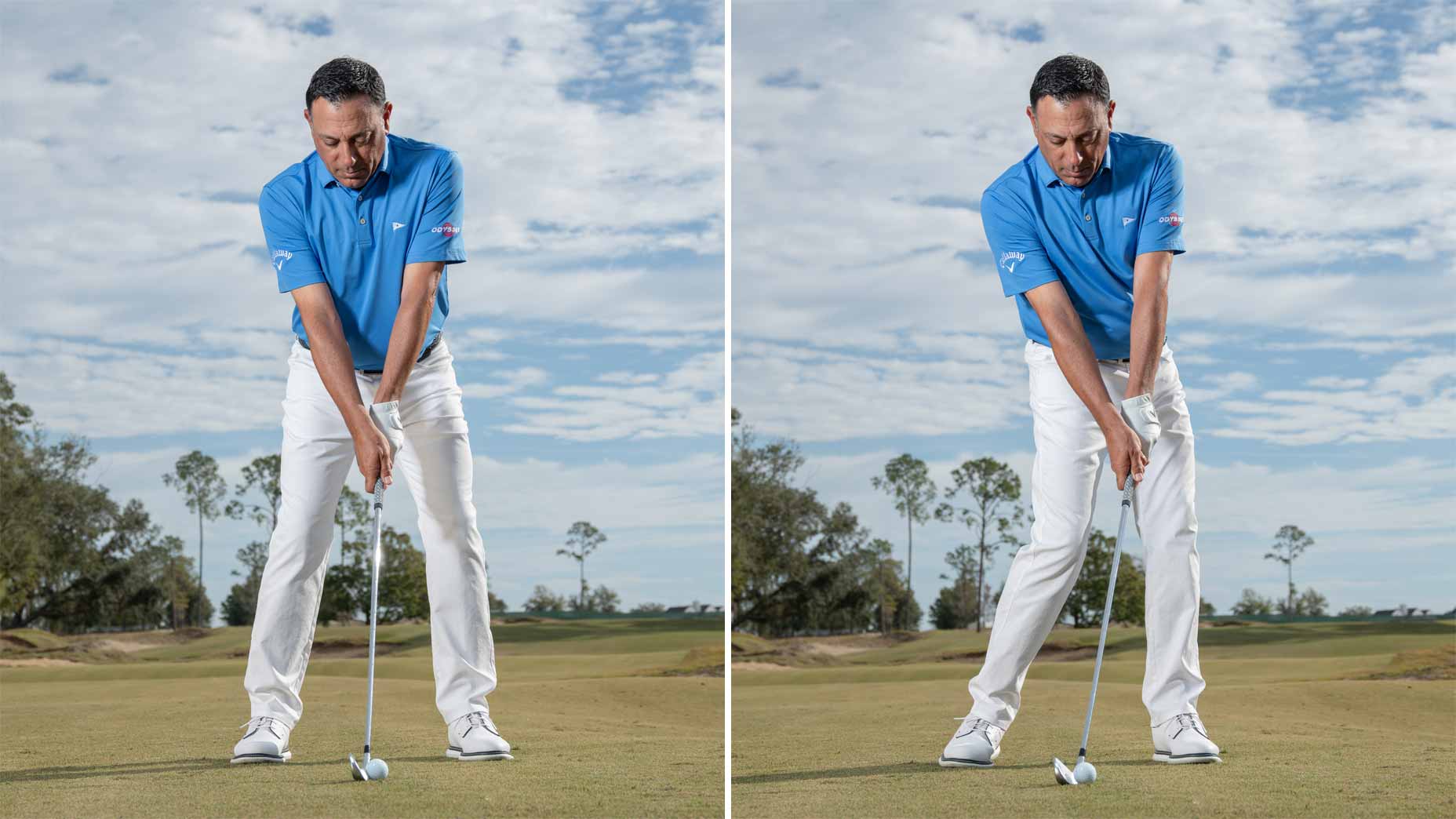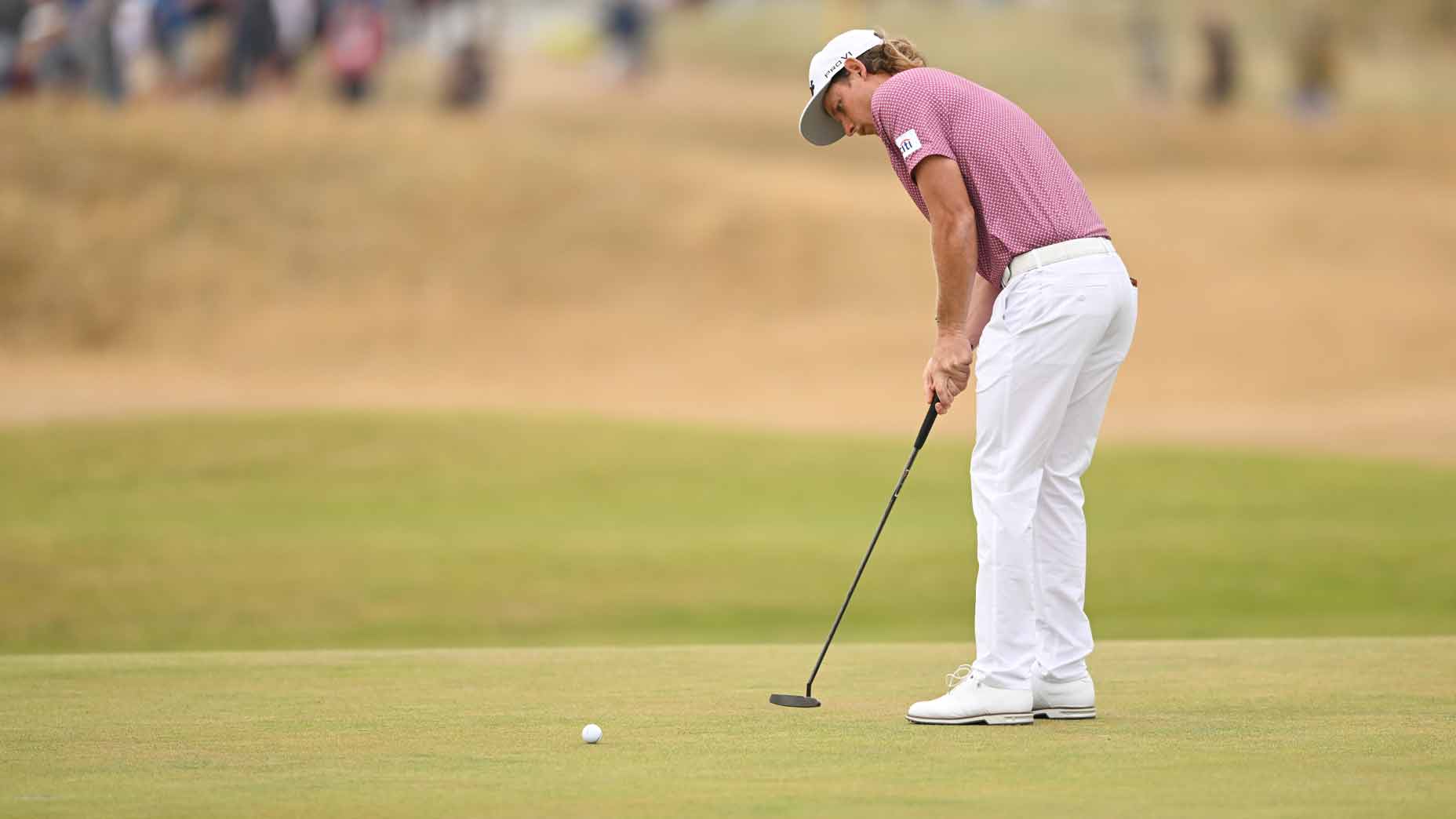Welcome to Play Smart, a regular GOLF.com game-improvement column that will help you play smarter, better golf.
With Sir Nick Faldo back in the booth this past week at the Open Championship, plenty of fans were reminiscing about his playing days on social media — and for good reason, because Faldo’s golf swing has clearly stood the test of time.
The winner of six major championships, Faldo spent 98 weeks as the world’s No. 1-ranked player during the peak of his career. While that helped him become a legend during his generation, even today, his golf swing is admired by many due to his precision strikes — which he spent building with David Ledbetter.
In today’s Play Smart lesson, GOLF Teacher to Watch Kelvin Kelley dives deeper into Faldo’s driver swing — revealing what players can still learn from Faldo’s timeless movements.
3 things you can learn from Nick Faldo’s swing
One of my favorite @NickFaldo006 swings pic.twitter.com/ArTrVnmkXn
— Kelvin Kelley (@KKelley_golf) July 21, 2023
According to Kelley, setup angles are often overlooked, and there’s usually an origin to the part you don’t like in your golf swing. Fixing this is harder to do, especially once the club is in motion — so you’re better served fixing it in a static position.
In order to help accomplish that, here are the three areas in the driver setup that you can learn from Faldo.
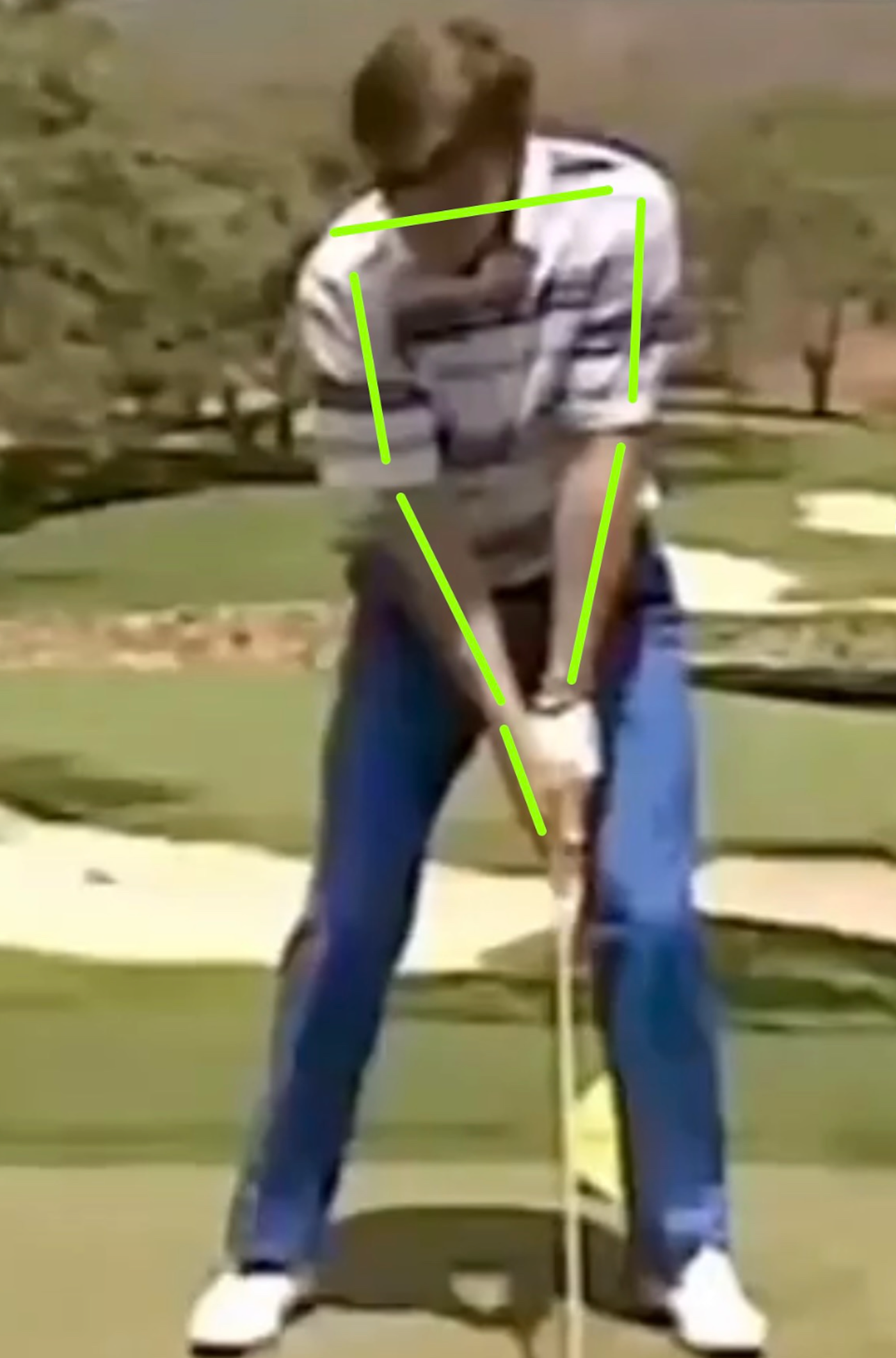
1. Relaxed arms
Having soft, relaxed arms equates to fast arms in the golf swing. Look for your arms to be relaxed, with the trail shoulder below the lead arm. This will enable you to have the trail arm bent and in a “pushing motion” to start the swing.
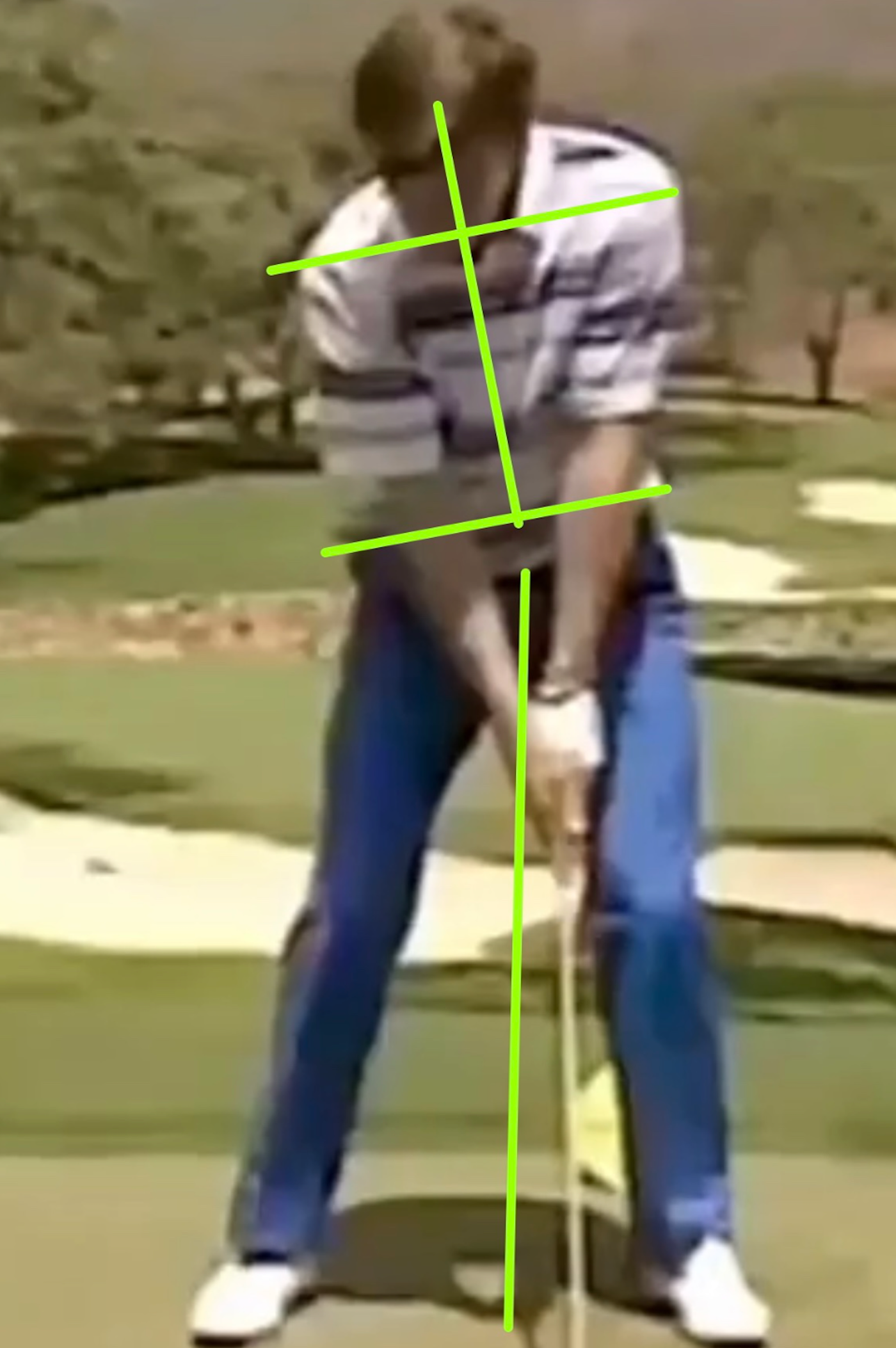
2. Upper and lower half relationship
With the arm structure above, this allows your upper body to be slightly behind your lower body. This is the proper position of the body at impact. Note that the shoulder line also matches the eye line in Faldo’s setup.
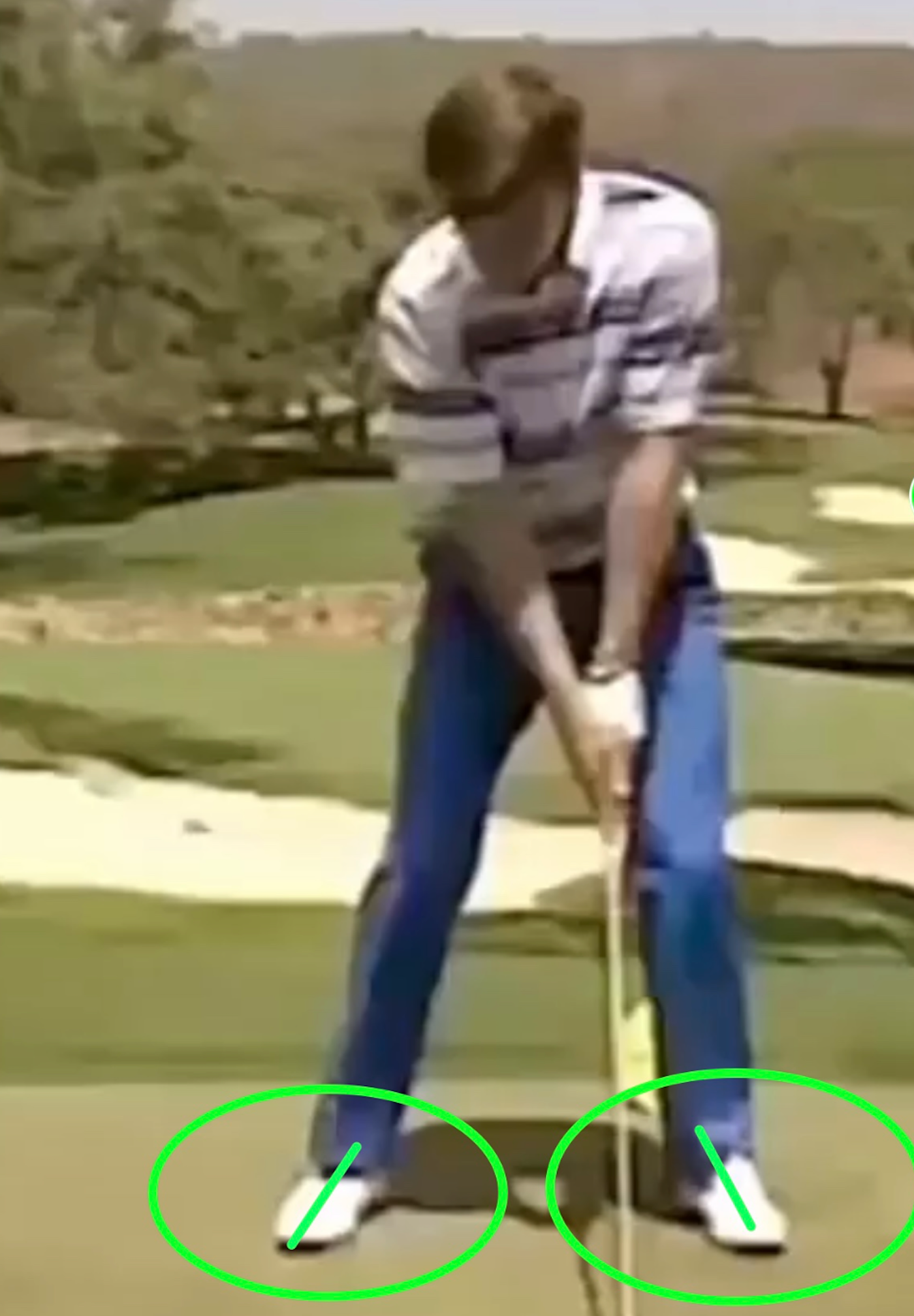
3. Foot angle
The angle of the feet are easily overlooked in the golf swing, yet they play a huge role in how the body moves. With an open trail foot, the trail side of the body can work back and around to the top of the swing.
The best way to practice this address position is with live feedback. Using a mirror, a reflection off of a window, your shadow from the sun, or even your phone all work great. If you decide to use your phone, simply switch your camera to screen view and place in front of you.
With the help of Faldo’s swing, you can start making great contact and see better shot results.

